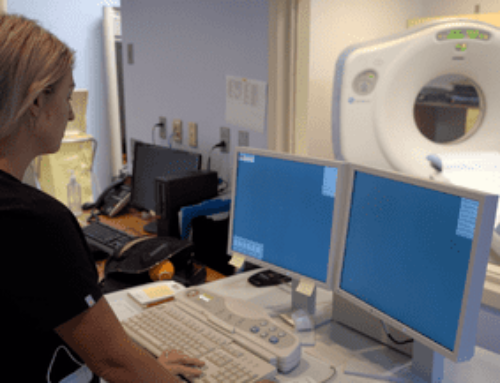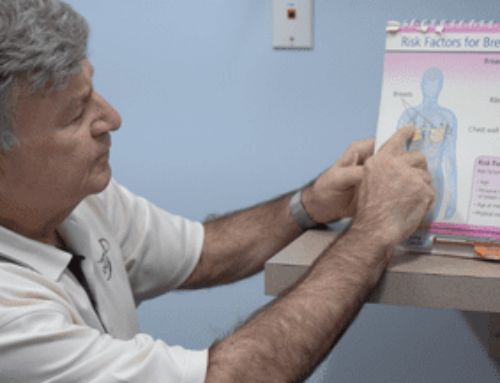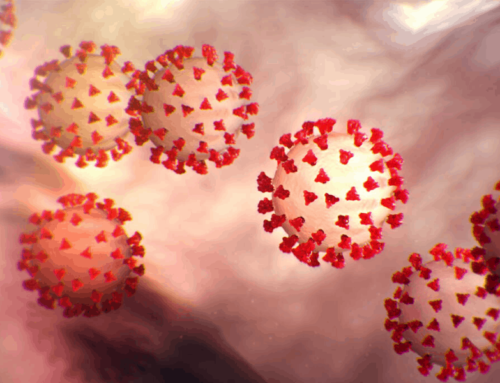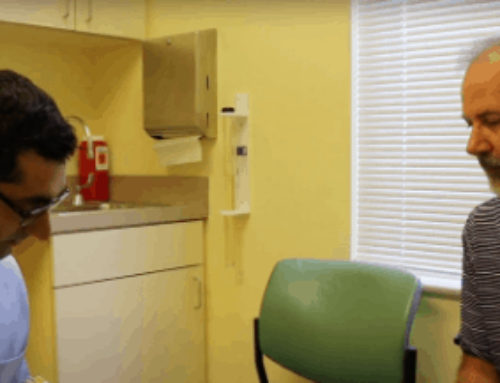- What is the prostate?
- What is prostate cancer?
- What are the symptoms of prostate cancer?
- How is prostate cancer treated?
- Can I prevent prostate cancer?
Prostate cancer is the second most common cancer in men in the United States. Each year, nearly 268,500 men are diagnosed with this disease and around 34,500 will die from it.
While you can’t always prevent prostate cancer, there are lifestyle changes you can make to help lessen the risk of developing the disease.
Prostate cancer is frightening because it doesn’t often show symptoms early on. Fortunately, there is a test that can help you detect prostate cancer early on to get the treatment you need. Prostate cancer is frightening because it doesn’t often show symptoms early on. Fortunately, there is a test that can help you detect prostate cancer early on to get the treatment you need.
Maneesh Gossain, M.D., board-certified radiation oncologist at the Central Florida Cancer Care Center Radiation Oncology Consultants, P.A., says, “Most of the time, prostate cancer is detected by a PSA test.” Dr. Gossain is referring to a prostate-specific antigen (PSA) test, which is used to screen for prostate cancer. What makes this test the best way to save your life?
What Is the Prostate?
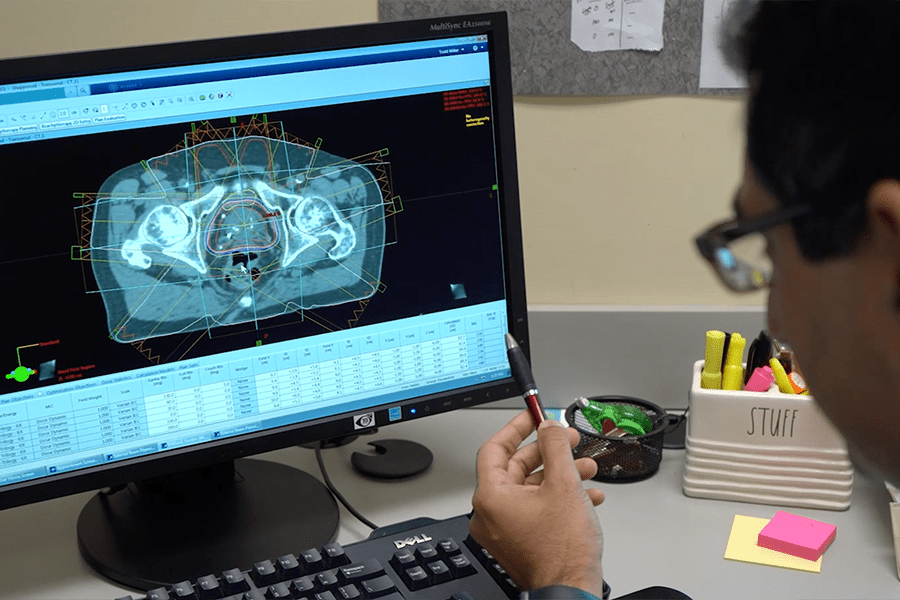 The prostate is a small walnut-sized gland that rests deep in the male body between the penis, bladder, and rectum. It’s an important gland for sperm production, secreting a fluid that coats and protects the sperm.
The prostate is a small walnut-sized gland that rests deep in the male body between the penis, bladder, and rectum. It’s an important gland for sperm production, secreting a fluid that coats and protects the sperm.
The prostate is also connected to urine function, because the urethra, a thin tube that runs from the bladder to the penis, divides the center of the prostate. As you age, the prostate grows. When most men reach the age of 40, your prostate is probably closer to the side of an apricot. By 60, your prostate may be lemon-sized. The problem, however, is as the prostate grows it may start to squeeze the urethra. This can cause big problems when you’re trying to urinate.
Dr. Gossain says that sometimes prostate cancer can masquerade as the normal growth of the prostate as part of aging, “You do sometimes see urinary symptoms where it’s more difficult to urinate. Most of the time, that means the prostate gland is enlarging.” Dr. Gossain goes on to say, “There are benign conditions where that can happen so you shouldn’t worry if that’s your only symptom, but it’s time to see a doctor.”
What Is Prostate Cancer?
Dr. Gossain says, “Prostate cancer is when cells of the prostate have DNA damage. Because of the DNA damage, cells start dividing out of control.” Cancer is characterized by an overgrowth of cells. Instead of the normal cell cycle of cell growth and death, a disruption causes wild expansion of cells that crowd out normal cells. In the case of prostate cancer, this wild cell growth occurs in a small gland that is part of male reproductive health.
Almost all types of prostate cancers are called adenocarcinomas. Dr. Gossain explains, “Most commonly it is adenocarcinoma because adeno means gland, and so the prostate gland cells start growing out of control.” However, there are a few other types of cancers that can occur in the prostate gland, including:
- Neuroendocrine tumors
- Sarcomas
- Small cell carcinomas
- Transitional cell carcinomas
No matter the type of cancer, a diagnosis is always serious. As the cancer grows and spreads, serious health issues, up to and including death, can occur.
What Are the Symptoms of Prostate Cancer?
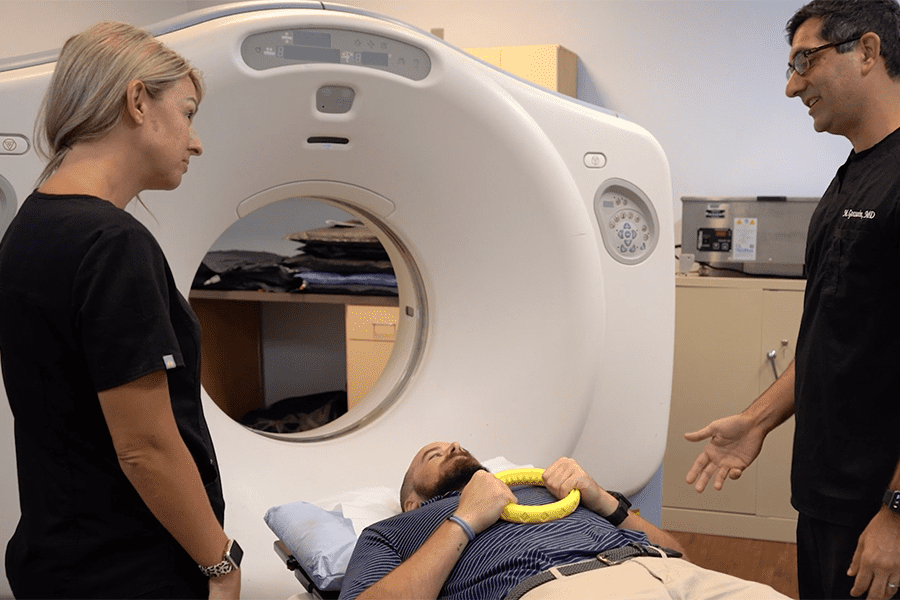 Every case of cancer is individualized, so you may not have symptoms of the illness at all until the cancer has spread. However, if you experience any of these symptoms, see your doctor right away:
Every case of cancer is individualized, so you may not have symptoms of the illness at all until the cancer has spread. However, if you experience any of these symptoms, see your doctor right away:
- Blood in your semen or urine
- Difficulty starting the flow when you try to urinate
- Frequent urination at night
- Intermittent or weak urination
- Painful urination
- Painful ejaculation
- Pelvis or back pain that won’t go away
- Problems completely emptying the bladder
- Weight loss
One in three men over 50 years old have some cancer cells in their prostate, but fortunately, most of these tumors are benign. If your doctor detects prostate cancer, what are your treatment options?
How Is Prostate Cancer Treated?
Dr. Gossain says, “One of the options of prostate cancer treatment is surgery or radiation therapy.” Like the symptoms you experience, though, cancer is an individualized journey. Your treatment is based on:
- The type, state, and grade of the cancer
- Your goals and preferences for treatment
- Your overall health and age
- Your risk category (does cancer run in your family or do you have other health conditions?)
Together, you and your doctor will chart out a course of treatment that will fight back against the cancer threatening your health. Some of the treatments could include:
- Active monitoring of the cancer
- Cryotherapy uses very cold temperatures to freeze and kill prostate cancer cells
- Drug therapies such as chemotherapy, hormone, or immunotherapy
- Localized surgery
- Radiation therapy
It’s important to point out that the diagnosis of prostate cancer is in no way a death sentence. The survival rate of prostate cancer has improved due to the innovative treatments available but also because of better screening processes that detect the cancer early.
The PSA test, which requires a blood sample, is the best screening tool to detect prostate cancer. Dr. Gossain says, “Between 45 and 50 you start testing annually and continue to do that. Changes in the PSA will trigger your doctor to do a biopsy.”
Can I Prevent Prostate Cancer?
We don’t yet understand the causes of cancer, so knowing how to prevent it is difficult. Your goal is to cut down on the risk factors that may lead to cancer. Dr. Gossain says, “Some of the causes of prostate cancer that they think are genetics, which you can’t control. Obesity, you can control, so if you adjust your diet and exercise, that’s helpful to prevent prostate cancer.”
Eating healthy foods, staying hydrated, and active are generally good ways to take better care of your body. If you’re older, having an annual PSA test as well as a routine prostate exam are important tools we can use to monitor for signs of the disease.
Central Florida Cancer Care Center Radiation Oncology Consultants, P.A. are here to help through all the stages of your cancer treatment. Talk with our team to determine the right treatment plan for you.


